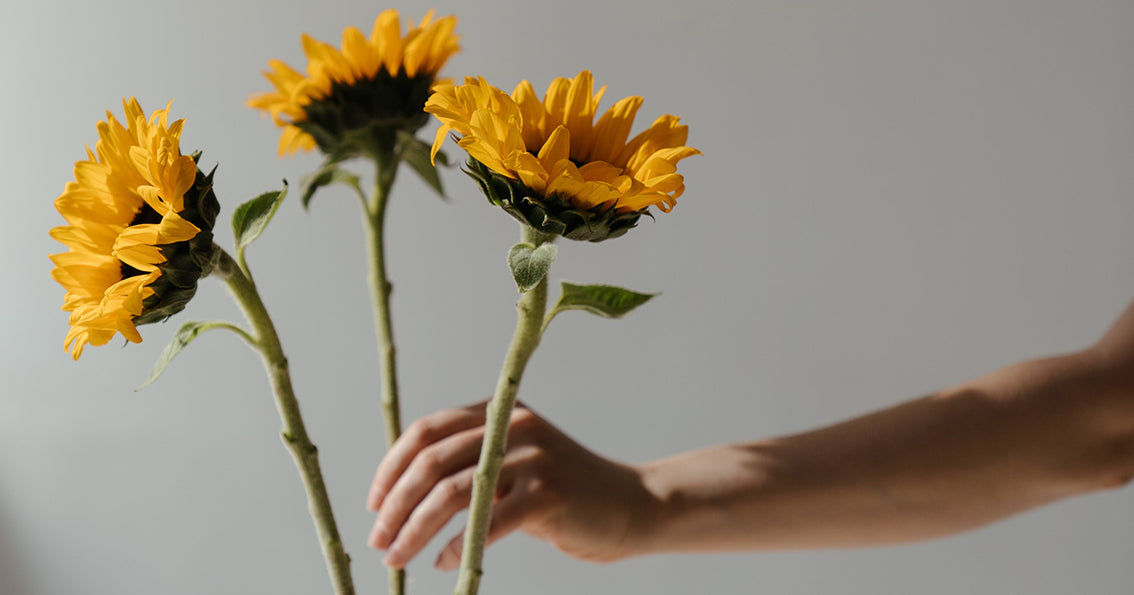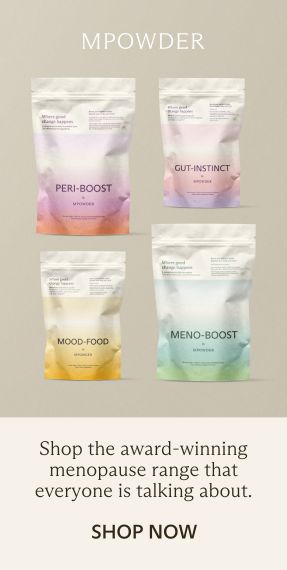We spend a fair bit of time thinking about labels and their impact. As we head towards National Menopause Month in a few weeks’ time, we’ve been reflecting on the words used to describe the life-stage and, in turn, the language we use to define the ageing process itself.
One of the biggest reasons people don’t actively seek out information around menopause is not that they don’t know it’s coming, but that it sounds so unappealing, they’d prefer to defer the knowledge. We get that. Totally. The media spotlight on menopause in the last 24 months has been a wonderful, powerful thing. But it is the bad stories, the nightmare experiences that sell papers and secure ‘clicks’. Which means that, from the outside looking in, the perception has become darker. When we think of the word itself, it’s loaded with so much - and very little is positive. In conversation people often skirt around it. ‘The M-word’, ‘the change’. Some have looked to propose more positive terms; ‘the shift’, ‘the big pause’. But it may be that, like the equally complex challenge around labelling ageing, what we actually should focus on is ‘reclaiming’.
In research undertaken a few years ago, American adults were asked if they thought a 65 year old qualified as old. 60% of the youngest respondents - those between 18-29 - said yes. But interestingly, only 16% of adults 60 or older made the same judgement.
The closer we get to old age, the later it starts.
I think there is something very optimistic in that data. Overall, 70% of respondents consider 65 to be ‘middle aged’ or even ‘young’. For us, it’s a term we’ve instinctively use for the entire arc of menopause - from 43-65+.
Perhaps we react against the world ‘old’, because it no longer reflects the many different life experiences we see around us as we age.
“Older adults now have the most diverse life experiences of any age group. Some are working, some are retired, some are hitting the gym every day, others suffer with chronic disabilities. Some are traveling around the world, some are raising their grandchildren, and they represent as many as three different generations. There’s no one term that can conjure up that variety.”
Source: Ina Jaffe, a reporter at NPR
So, if we’re not ‘old’ at 65, what are we? Some advocate the use of ‘older’. It’s not perfect - but it appears to be preferred to ‘senior’ or ‘elderly’.
‘Elder’ (or ‘Eldress’!), has some support too. They see associations with value and wisdom as opposed to associations with deterioration.
And an emerging group of people are suggesting something entirely different. Something that reflects the multitude of life experiences and realities amongst the ageing population. ‘Perennial’.
New label or new mindset?
Yet, those in the field of human development may be right. Maybe it’s time to reclaim ‘Midlife’ as truly reflective of lifespan (+45 and up), ‘Old’ and ‘Menopause’. To prompt reframing through our own lived experiences. Rather than hiding behind new terms, why not embody new definitions? Fill the labels to be rich with diversity and opportunities.
A world where part 2 is equally as full of promise as part 1, is one of the best legacies any of us could leave those that follow.
What are your thoughts? We’d love to open this topic up for discussion. Drop us a line - or make sure you’re following the conversation on instagram by giving us a follow - @mpowderstore.
With love, Rebekah and The MPowder Team.
Share Twitter Facebook Pinterest

